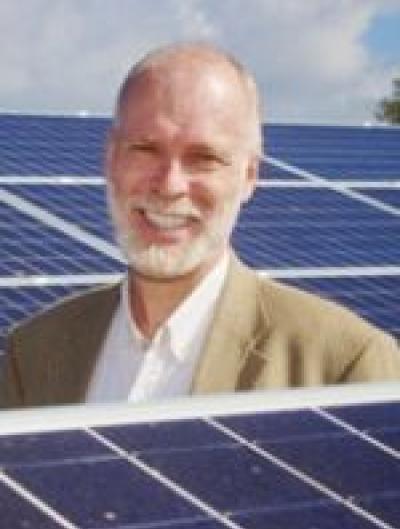Eric Matthys
Professor
Mechanical Engineering

Research
Eric Matthys' research interests include non-Newtonian fluid mechanics and heat transfer, with experimental investigations of the characteristics of complex fluids such as surfactant solutions or polymer solutions, especially turbulent flow of drag-reducing fluids and issues of active control of convective heat transfer. Some of his research projects are focused on energy-related applications, ranging from decreased energy usage in buildings to airflow and control algorithms for energy-proportional computation. Matthys conducts studies on implementation of drag-reducing fluids in industrial applications such as HVAC or fluid transport through laboratory and large-scale field tests. Another focus of his research is fundamental rheological work on the equilibrium and dynamic viscoelastic properties of drag-reducing fluids undergoing micellar self-assembly. He is also interested in transport phenomena in manufacturing and materials processing, which includes experimental and numerical investigations of materials processing and manufacturing systems involving solidification of molten metals.
Affiliations
Center for Energy Efficient Design, Member
Greenscale Center for Energy-Efficient Computing, Member
Biography
Matthys’ passion for sustainability began with his early interest in high-efficiency diesel engines while an undergraduate student in Europe. Subsequently, he undertook innovative efforts as a graduate student at CalTech to retool technologies to make industrial energy systems more efficient. He investigated the concept that the turbulence level in fluids can be drastically reduced by introducing minute amounts of special polymeric or surfactant additives into the flow. The result is a large decrease in the amount of energy needed to move fluids through systems such as pipelines or hydronic heating and cooling systems. That research expanded when he joined UCSB in 1985. Working with the campus Facilities Management staff, he and his research team later tested the proposed technology in the cooling systems of some of the newer campus buildings. “We were able to show that the technology is indeed working as we thought it would, saving large amounts of energy,” he said. Recently, Matthys has been looking at ways to develop technologies to reduce the power it takes to propel ships by using innovative biotechnology approaches for hull coatings.
Contact
2349 Engineering Science Building II
University of California, Santa Barbara Santa Barbara, CA 93106-5080